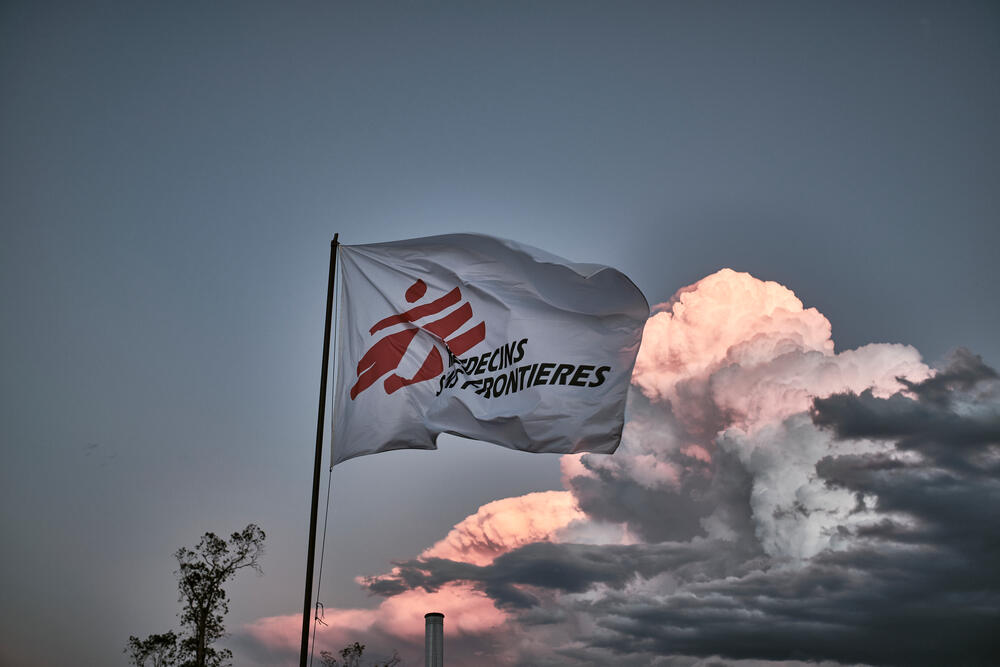Mass influxes of wounded patients to hospitals across Sudan as ‘war on people’ continues
5 February 2025
MSF teams in three different parts of Sudan - Khartoum, North Darfur and South Darfur states - treated mass influxes of war wounded patients as the war between the Sudanese Armed Forces (SAF) and the Rapid Support Forces (RSF) continued, with little respect shown for civilian life.
On 4 February in Nyala, South Darfur, 21 injured patients were brought to the MSF supported Nyala Teaching Hospital after airstrikes by the Sudanese Armed Forces hit a peanut oil factory , with reports of 25 people killed. On 3 February airstrikes hit residential areas of Nyala, hitting and destroying civilian houses. The airstrikes took place in the afternoon when many people were around. Thirty two people were reportedly killed and dozens injured, with many patients brought to the Nyala Teaching Hospital.
An MSF doctor was working in the hospital when the airstrikes took place.
“The bombing was near the hospital. We felt the building shaking. Once I went to the ER the situation was horrible. Blood was everywhere, some patients were suffering from fractures, some had limbs amputated. While I was going around the ER, I saw two children. One was four years old, the other was two years old. Their aunt told us that this child had lost three of her siblings and her mother had died, and only her older brother and father survived because they were at work.”
Civilians have also been killed in El Fasher, North Darfur, the scene of fierce clashes in recent months. Over the last few days MSF teams have been treating wounded civilians in Zamzam camp after escalating heavy fighting between the RSF and SAF and their Joint Forces allies resulted in scores of casualties. On 2 February the MSF field hospital in Zamzam camp received 21 wounded patients, more than half of whom were children, who had been injured while fleeing Shagra, a village in El Fasher locality.
MSF’s field hospital in Zamzam is for paediatric and maternal healthcare and not equipped to handle trauma injuries requiring surgery. The only remaining surgical services were a few kilometres away yet people were unable to use the road between Zamzam and El Fasher due to the ongoing fighting and shifting frontlines.
Patients in critical condition were trapped in Zamzam camp with no access to lifesaving care. Four patients were among the wounded who passed away, five patients were successfully referred to El Fasher on 3 February where Saudi hospital remains somewhat functional despite relentless attacks, with a recent bombing of the facility on 24 January reportedly killing 70 people.
Thousands of people fleeing from Shagra have arrived in Zamzam in recent days, leaving everything behind in desperate search of safety. They have told our teams of horrific violence in the area. About 60 families from Shagra also reached Tawila, where MSF runs an emergency programme providing emergency, nutritional, paediatric and maternal healthcare. They told MSF teams that people were robbed and attacked as they fled along the road.
Violence has also intensified in Khartoum state since the beginning of February. On 4 February, during RSF shelling of Omdurman there were explosions within 100 metres of the MSF supported Al Nao hospital. The Ministry of Health reported that 38 people were injured and six people were killed, including a volunteer from the Al Nao initiative, in which people volunteer to assist in running the hospital.
This is the second time medics working at the hospital have responded to a mass influx of wounded patients in recent days. On 1 February an RSF attack on a market on 1 February killed 54 people, according to the Ministry of Health. Since the war in Sudan started Al Nao hospital has been hit by explosions three times, in August 2023, October 2023 and June 2024.
“The violence that the Rapid Support Forces and Sudanese Armed Forces are inflicting on civilians right across Sudan is tragic and appalling”, said Ozan Agbas MSF Emergency Manager. “The violence continues ruining lives, making it harder for people to access healthcare and putting healthcare workers at risk. We urge the warring parties to protect civilian life and spare them from this war on people.”
